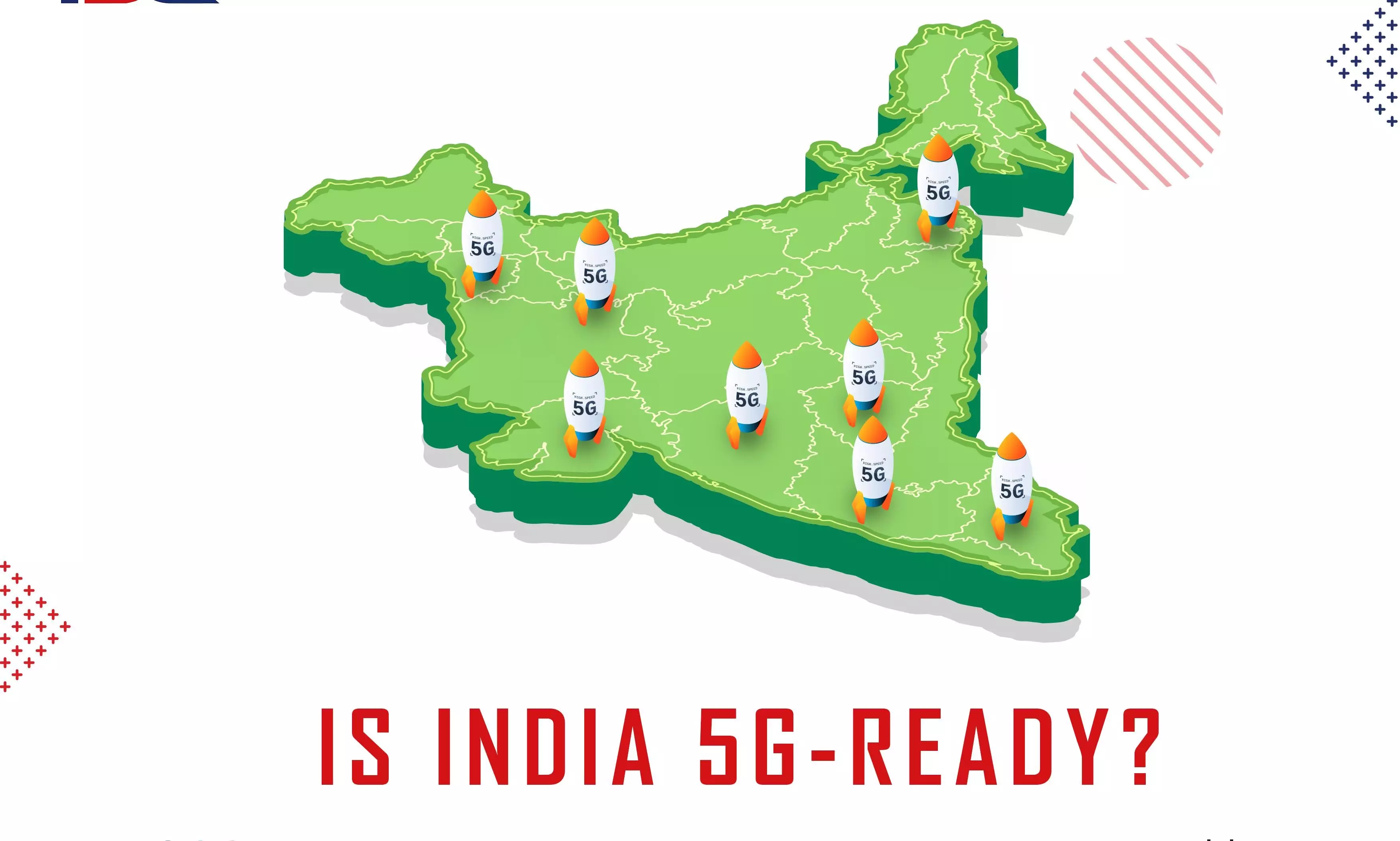Is India 5G-Ready?
The launch of 5G took place recently in India's capital – New Delhi. Addressing 5G as "Digital Kamdhenu", telecom leaders have been describing it as one of the important growth accelerators for achieving the 5 trillion dollar target for the Indian economy.
By Newsmeter Network
Leading India towards the ultra high-speed internet and digital services, Indian telecom companies have recently rolled out 5G. Through this launch, the telecom sector offers faster transfers and less latency rates. The launch of 5G took place recently in India's capital – New Delhi. Addressing 5G as "Digital Kamdhenu", telecom leaders have been describing it as one of the important growth accelerators for achieving the 5 trillion dollar target for the Indian economy.
Extending its hand towards the digital revolution, the Indian government has heavily invested in the 5G infrastructure. The telecom infrastructure, however, has a long way to go. Bharti Airtel and Reliance Jio are amongst the first 5G service providers in India. The cities covered in the first phase are metros including Ahmedabad, Bengaluru, Chandhigarh, Chennai, Delhi, Gandhinagar, Gurugram, Hyderabad, Jamnagar, Kolkata, Lucknow, Mumbai, Pune.
Massive Infrastructure Investments
As per studies, the time taken to deploy each generation network in terms of quality and geography has been up to 10 years. The entry of 5G will not impact the existing networks. However, there is a list of issues that need to be addressed simultaneously. Deploying 5G will need huge infrastructure capital investments.
Meanwhile, device compatibility is one of the bigger challenges in establishing the ultra high-speed network. A handful of mobile brands like iPhone, Samsung, Oppo, OnePlus, Realme and Xiaomi etc claim to have 5G compatible models in their latest releases. However, the quality cannot be guaranteed unless tested. The question of upgrading the other handsets and the interest among people to spend extra bucks for mobile or network switch still lies unanswered.
Of Information Highways & Smarter Everything
5G aims to expand various industries of India in coming years. With its enhanced connection, speeds, stability, and low latency, 5G is also having an impact on the Internet of Things (IoT), virtual reality (VR), and artificial intelligence (AI). It is opening up fresh possibilities and experiences, such as immediate access to cloud services, real-time teamwork, on-demand medical advice, and low-latency cloud gaming.
5G will be expanding the nation's horizons through different applications like strengthening High-Speed mobile network while reducing the latency rate, improving Entertainment and multimedia experiences, enhancing user friendly experience of smart devices, building Smart cities that conserve energy and Smart farming and also creating mission-critical applications for smoother business operations.
Higher internet speed is a hand-in-glove initiative of the government and the telecom sector to create a social impact. Along with the increasing GDP, the telecom industry also aims to bring about dramatic developments like precision drone-based farming, high-security routers and AI-based cyber threat detection platforms, automated guided vehicles, Ambupod - smart ambulance, augmented reality/virtual reality/mixed reality in education and skill development, sewage monitoring system, smart-agri programme, health diagnostics and so on.
Ransomware Attacks to Escalate
What will also be a challenge post 5G deployment, is the ransomware attacks which are likely to lead to privacy and information breach for governments and citizens. Above all, lies the interest and call to action by the users. Will the users feel the need and take initiative to switch their networks and phones? Will investing in 5G be worth it? And, more importantly, can India claim to have the right infrastructure to be 5G-ready yet?
(This article is written by Alisha Fernandes from TechDoQuest (TDQ), in partnership with NewsMeter. Views expressed by TDQ do not reflect that of our media organization).